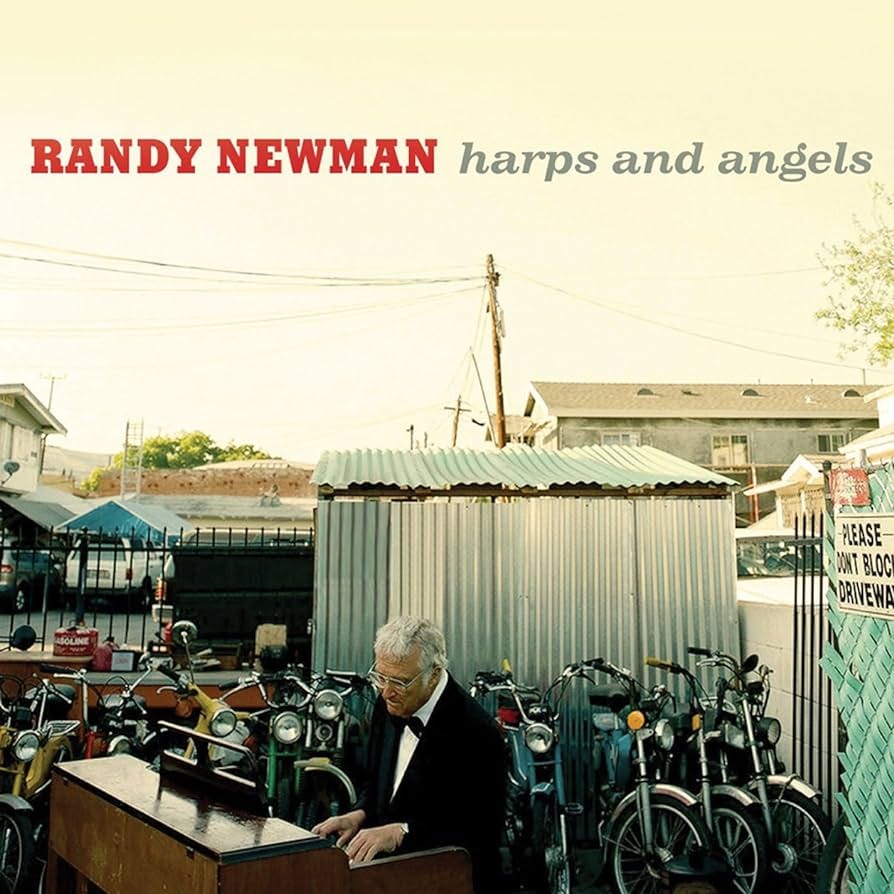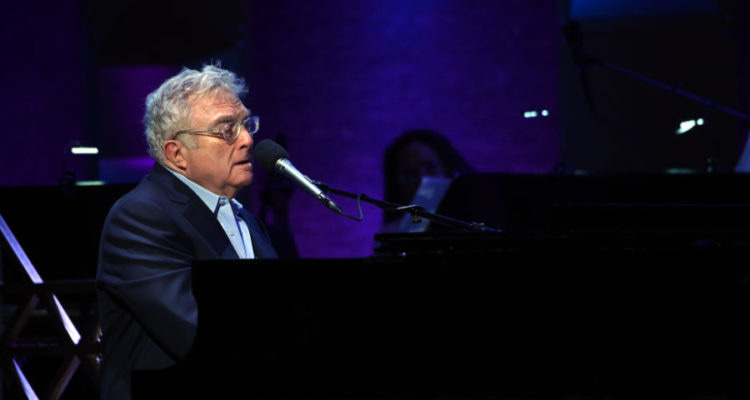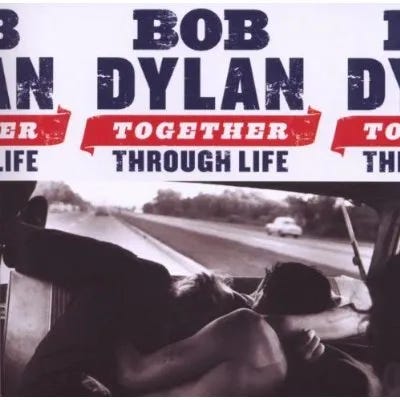Randy Newman once quipped that the Toy Story generation, having grown up with his Pixar music ingrained in their minds, might be the first generation who would really like or appreciate his voice.
If that is true, then it doesn’t seem that too many of us branched out from those Pixar soundtracks to explore his wider studio output, but more people should do. Say his name to most people of my age and younger and they will most likely only know Randy Newman as “The Toy Story Guy”.
Talking about his voice in another interview, Newman has said that his singing capabilities dictated the kinds of songs that he could write. One reason he gives as to why he doesn’t write much about romance and love like most other songwriters do is that “I don’t have a voice like Andrea Bocelli”. Without the smooth crooning voice of a romantic, he aspired to write a different kind of song.
Newman has eschewed love songs and romance for most of his writing career in favour of more character driven narratives; political satires that explore themes like racism, discrimination, addiction, family tensions and studies of the human condition.
“I had read books and I didn’t know why we shouldn’t have the same latitude that short story writers have” - Randy Newman
With his literary ambitions and a deeply ingrained family connection with movie music - his uncles Alfred, Emil and Lionel were all film composers of great renown, with 57 Oscar nominations between them, as are a bunch of his cousins - it is easy to see why Newman’s lyrics are so intelligently crafted, the scope of his music so ambitious, but, coupled with his unique voice, it is also easy to see how his output could be off-putting to the general public.
Diving into his wider catalogue is a rich, rewarding and enlightening experience though. Newman is one of the great American songwriters. Sail Away and Good Old Boys are two of the best and most underrated records from the 1970s. Each of his albums have at least one genuinely great song on them and usually there are a handful or more. His songs have been covered by, and in a lot of cases turned into hits far bigger than Newman could dream of having himself, by artists like Tom Jones, Three Dog Night, Nina Simone, Linda Ronstadt, Joe Cocker, Neil Diamond, Dusty Springfield and many more.
Through the late 1960s, 70s and 80s, Newman released new music with some regularity but his studio output slowed somewhat when he began working on more movie scores and soundtracks. By the time that Harps and Angels came out in 2008, he hadn’t released an album of original material in almost ten years.
The album, though, was well worth the wait.
Right out of the gate, Newman acknowledges his absence from the studio, with the opening lyrics of the first song on the album
Hasn’t anybody seen me lately
I’ll tell you why
I caught something that made me so sick
Til I thought that I would die (and I almost did, too)
The song shuffles along sounding as frail as the character who’s telling us this story. His knees are weak and he can’t go on. Now down on the ground and with tears on his face, he hears a sound that saves him; the sounds of harps and angels.
In the song, we hear them both, too, and alongside them a swell of guitars and organs join Newman’s rolling ragtime piano to bring heaven above down below to us here on the Earth. Newman is scolded by an angry Old Testament voice (“You ain't been a good man, you ain't been a bad man, but you've been pretty bad”) and returned to life with a warning that he shares with us here to act right and keep your business clean.
From a heavenly story to a heavenly arrangement, the second track, Losing You, is a heart-wrenching ballad in the vein of the devastating Marie from Newman’s 1974 masterpiece Good Old Boys.
Marie is another character song, sung as a drunken apology for not listening, for not being there and for causing pain again and again. It’s a drunken declaration of love but you know the singer hasn’t learned his lesson; he’ll do it all again tomorrow and his apology will be even more beautiful, his mistakes even more disappointing.
Losing You may be being sung by the same character, a lifetime later and now truly repentant, having lived long enough to understand where they’ve gone wrong. Both songs are drenched in and enriched by cinematic strings which tug at your heart and help make you feel every word that Newman is singing. When he laments that “I'd get over losing anything, but I'll never get over losing you”, you feel it deep in your core and take on that heavy sense of loss, as well.
Just as the harps and angels pick Newman up off the floor in the first song, though, Newman himself now picks us up with the next song, advising
Laugh and be happy
Don't you ever wear a frown
Don't let the bastards grind you down
Laugh and be happy
A simple thing to do
Live in your dream
And your dream will come true
Musically, this wouldn’t be out of place on one of Newman’s Pixar works. It is a jaunty, almost carefree and up-tempo number with some fun theatrical moments and turnarounds. Some of the lyrics are funny enough that they genuinely do make you laugh and be happy. The tap-dancing percussion and flurry of brass and woodwinds are a real joy and both instrumental breaks are so much fun that you could almost dance to them. It certainly makes you tap your foot and bob your head.
Newman’s sound almost seems to sit outside of conventional time. Who else would think about putting out a record like this? And in 2008? Musically, he’s rooted in a deeply American tradition, but, while he certainly has a formula with his sound, he is quietly quite inventive and playful with it. There are aspects of Aaron Copeland in his music and a lot of sounds of the South. There are elements of blues and gospel and country and ragtime in what he does, and while he is associated with Pixar, a lot of the brass-work, woodwinds and strings on this album more closely recall those early magical Disney scores.
Just as Losing You recalled Marie, the next song is also in a similar vein to another one of his classic pieces. A Few Words in Defence of Our Country could be the older brother of Political Science, a musical run-through of American foreign policy which is worthy of George Carlin at his excoriating best.
A Few Words in Defence is the Elder Statesman to Political Science’s young and green, over-keen narrator who is trying to prove himself on the world’s stage and getting ready to “drop the big one and pulverise ‘em”.
These few words do not offer the strongest of defences (“now, the leaders we have, while they're the worst that we've had, are hardly the worst this poor world has seen”) but pave the way for a demonstration in just how bad things have been throughout human history.
Take the Caesars, for example
Why, with the first few of them
They were sleeping with their sister, stashing little boys in swimming pools, and burning down the city
And one of 'em, one of 'em appointed his own horse to be Counsel of the Empire
That's like vice president or something
Now, wait a minute that's not a very good example
But here's one
The Spanish Inquisition
Put people in a terrible position
I don't even like to think about it
Well… sometimes I like to think about it!
The song is one of Newman’s greatest satirical pieces; sardonically funny and dripping with irony. It is complete with a great ebbing arrangement that rises and falls as his defence of the country gets more passionate or alternately runs out of steam.
Just a few words
In defence of our country
Whose time at the top
Could be coming to an end
Now, we don't want their love
And respect at this point's pretty much out of the question
But in times like these
We sure could use a friend
At the time the song came out, George W. Bush was still the President of the United States. At times, the gaffe prone-president became an international laughing stock (in the words of the great Groucho Marx “He may look like an idiot and talk like an idiot but don't let that fool you. He really is an idiot”) but that image of comical-incompetence risked hiding the fact that he really did exhibit a lot of genuine incompetence, including his disastrous waging of war in the Middle East during which he was accused of committing numerous war crimes; his response to the desperate need for aid after the devastation caused by Hurricane Katrina, his domestic tax policy and, at the end of his presidency, the 2008 financial crash.
You can only wonder what kind of defence this narrator would try to make about President Trump, if one would even be possible, or the state of the Supreme Court now (which does get its own verse in the song, but which has become much worse than the writer or narrator could have imagined at the time the song was being written).
The end of an empire
Is messy at best
And this empire's ending
Like all the rest
Like the Spanish Armada
Adrift on the sea
We're adrift in the land of the brave
And the home of the freeGoodbye
Goodbye
Goodbye
Talking to Jon Ronson in the 2003 documentary I Am, Unfortunately, Randy Newman, the composer said that “there isn’t anything more important to me than writing well” and this record is full of wonderful writing, both lyrically and musically. On both fronts it stands amongst Newman’s greatest work from start to finish and is easily his best outing since Little Criminals in 1977.
A Piece of the Pie is one of his more outlandish and ambitious musical works, not quite Last Night I Had a Dream but more Last Night I Had a Nightmare. It’s an up-side down musical mess that disorients and wrong-foots you in all the best ways possible.
From there, a song that is less than easy listening, he brings us to Easy Street. This is a laid back bar-room rag that sends Tom Waits’ Step Right Up right on down to New Orleans for a Sunday morning Dixieland shuffle.
Korean Parents is another aural oddity - a phantasmagoric trip that is less Dixie Flyer than it is Orient Express - but the lyrics are pure unfiltered and classic Newman. A racially paranoid character song in the tradition of Rednecks, the song plays on American paranoia about Asian imperialism and perceived over-achievement.
Look at the numbers, that's all I ask
Who's at the head of every class?
You really think they're smarter than you are?
They just work their asses off; their parents make them do it
By the end of the song, Newman seems to break character and unleash his frustration with American racism and whining, half singing and half shouting “Greatest generation? Your parent's aren't the greatest generation. So sick about hearing about the greatest generation!”.
Only a Girl is another curio, a minor song with some humorous lyrics not a million miles away from his 1979 composition The Girls in My Life. Everything here feels laid back, from his vocal to the ensemble playing behind him, although the song zips along at a clip. The track feels like the kind of thing Newman and his assembled musicians could get down in their sleep. It’s not a bad song, but coming after the more outlandish A Piece of the Pie and Korean Parents it can on first listen feel a little unambitious.
The same could be said of the penultimate track Potholes. Beginning as a meandering march with a dash of Newman’s trademark rolling piano, the song is saved first by the arrival of the woodwinds when they come in with a climbing countermelody and then by the added energy and emphasis in the chorus as Newman wails “God bless the potholes down on Memory Lane!”.
Some of the bigger and better songs here do threaten to overshadow the more minor pieces (and so it goes on most albums), and as we reach the end of the record it could be said that Only a Girl and Potholes threaten to temper the momentum of the album but there is still the truly wonderful closer to go.
If Newman set out to write literary short-stories and character driven narratives instead of writing love songs and ballads just like everyone else does, then you would say he accomplished that goal on Harps and Angels and then some. Almost to prove that he could have gone down the other route all along if he had wished to, though, he closes the record with the gorgeous Feels Like Home.
Originally written for the musical Randy Newman’s Faust and included on his 1995 album of the same name (where it was sung by Bonnie Raitt), Feels Like Home is a beautiful and tender ode to true love. Newman accompanies his frail and yearning voice with his finest piano playing on the album and is joined once again by a cinematic string section, gentle percussion, woodwinds and brass which all come together to really sell the song, the emotions and the love.
Entirely earnest here on the last song, Newman has now dropped the act; he’s dropped all the characters and the cynicism. He’s dropped the irony and the satire. What is left behind all of that is an incredibly warm, vulnerable and romantic lyricist and singer after all; and a song that is incredibly human.
If you knew how much this moment means to me
And how long I've waited for your touch
If you knew how happy you are making me
Oh, I never thought I'd love anyone so much
Feels like home to me
Feels like home to me
Feels like I'm all the way back where I come from
After making his fans wait nine years between the album before it and Harps and Angels, Newman didn’t release his next album until 2017 when he returned with the excellent Dark Matter. By that maths, we only have two more years to wait until his next masterpiece.
Notable album releases
Adele - 19
Coldplay - Viva la Vida or Death and All His Friends
Duffy - Rockferry
Elbow - The Seldom Seen Kid
The Last Shadow Puppets - The Age of the Understatement
Laura Marling - Alas I Cannot Swim
Lykke Li - Youth Novels
Santogold - Santogold
Taylor Swift - Fearless
Vampire Weekend - Vampire Weekend
Quietly, then, a pretty good year. Elbow’s One Day Like This is a perfect summer song; I couldn’t tire of listening to that one, even if I find the rest of their output to be pretty take-it-or-leave-it. I don’t love a lot of the acts featured in this week’s Notable Releases section, but I do like all of these songs or the albums they came from. It isn’t the case every week!
Next up, Together Through Life: Looking back at 30 years of Music will probably turn its attention to Together Through Life: Bob Dylan’s 33rd Studio Album.









Having grown up with the Randy Newman of ‘Sail Away’, ‘Good Old Boys’, and ‘Little Criminals’ while having a son that grew up with Pixar, I love reading perspectives from those who discover Newman in present (and recent past) and work their way back.
Wonderful essay.
Love this piece! Randy Newman to me is the pinnacle of songwriting. This album is his most solid start to finish, both in the music and the writing, although Good Old Boys and Bad Love are still probably my favorites. I will say I love both the tracks Only a Girl (the “Goddamnit” at the end maybe saves it a little) and Potholes. The second verse of Potholes is one of my favorite verses of his. Also was glad to hear Feels Like Home on this album, which I think is a perfect song. Thanks for the read.